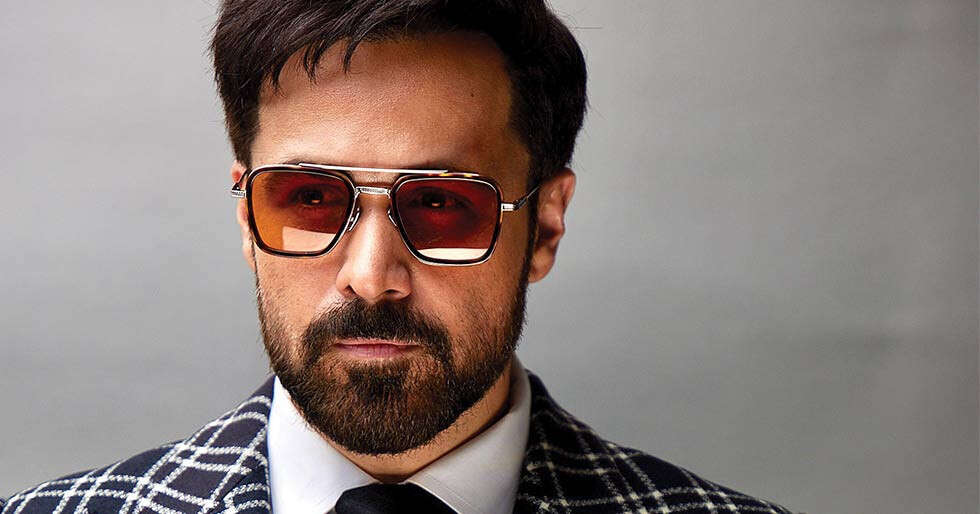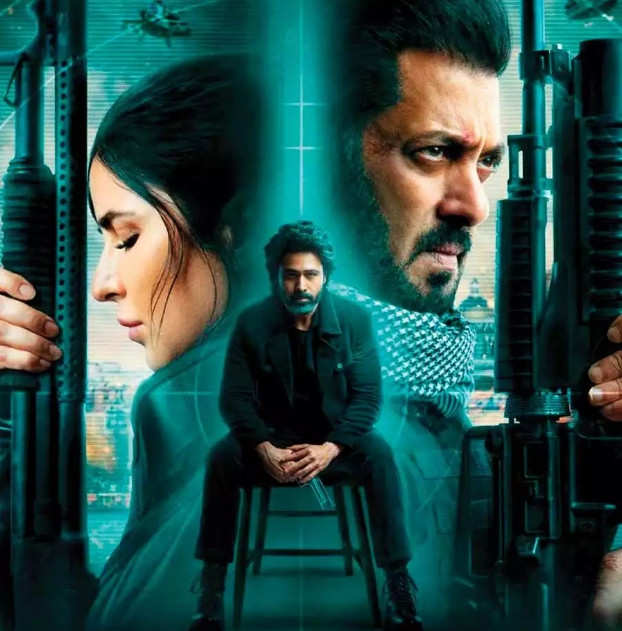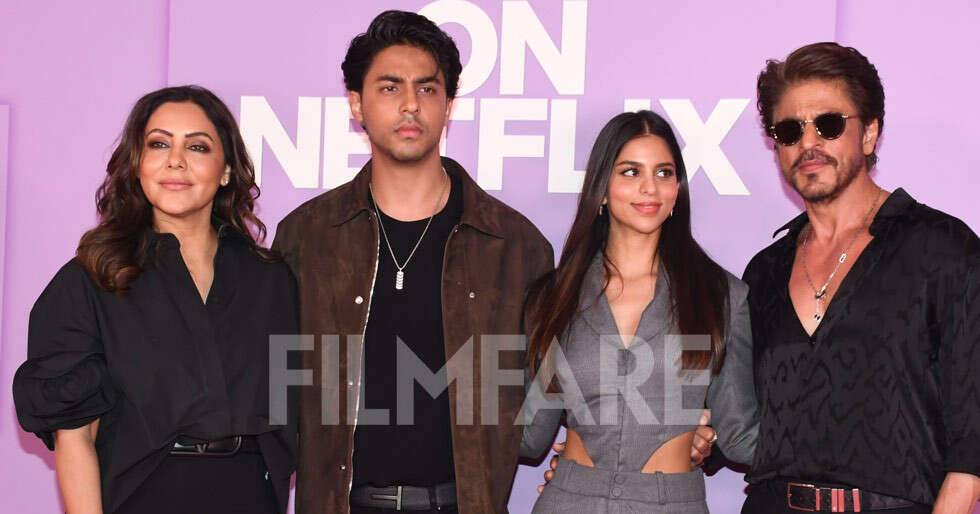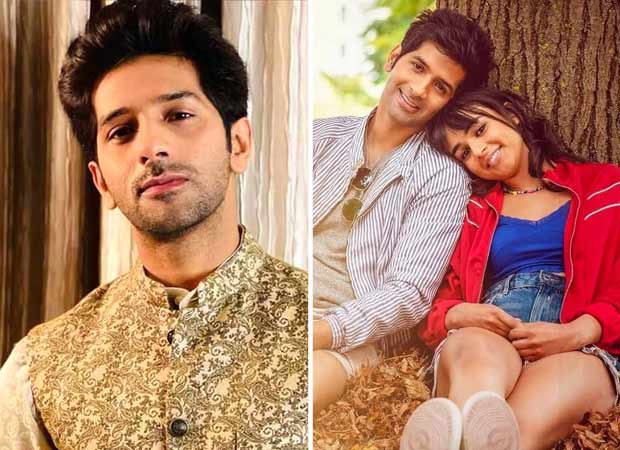Exclusive: Emraan Hashmi, from romantic lead to unconventional villain

Exclusive: Emraan Hashmi, from romantic lead to unconventional villain
Emraan Hashmi made a career out of on-screen kisses. He was the OG serial kisser. Tell him that, and he grins. In all his earlier interviews, he played down the image, saying what he was doing was just part of the job. Now, a more mature version of the actor is seen on screen. We saw that in Selfiee, where he played a superfan of a superstar, played by Akshay Kumar. He was cast as a grey-shaded character and one could see he enjoyed every moment of it, as it gave him an opportunity to break away from being billed as a rakish romantic lead. With Tiger 3, where he plays an anti-hero, one could see the artiste in him savouring every minute of it. It allowed him to unleash his dark side and show the audience what they had been missing. Emraan has seen enough ups and downs to know that both success and failure are fleeting at best. What matters is how you bounce back from both and welcome what life throws at you with open arms. Excerpts from a candid chat with one of the most sorted actors…
How much of your off-screen bond with Salman Khan helped while filming for Tiger 3?
It always helps if you’ve known someone before. That’s true for me and Salman. It’s not like we hang out every day together, but I’ve had instances where I’ve met him. I went to his place a long time ago. I had taken my son to meet him because my son was very keen to meet Salman. He loves his films. I’ve realised that Salman’s one of those actors with no pretence. There’s no projecting an image. He is what he is. He says what he feels. I don’t even see an ego there. I like that honesty. I’m comfortable with people like that. There are some people you sit with, and there’s always a bit of a facade. They’re projecting something they’re not. I don’t want to name those actors, but sometimes you might work with someone for a hundred days and still not get to know them. But with Salman, if you sit with him for five minutes, you know him.
How surreal was it going from watching Salman Khan movies to starring with him?
It was kind of surreal because you’ve grown up watching someone and you’ve watched their films multiple times and suddenly you’re doing a film and you’re marking these dialogues. I’ve been following his life as an audience member, and it was amazing to finally be working with them on this one on the big screen.

Were you apprehensive about playing the antagonist?
Konstantin Stanislavski said, “There are no small parts, only small actors.” When you’re playing a character, it might not be the protagonist and there are instances in my career where I’ve played parts where I’m not the protagonist. I look for the eventual impact that the character has on the larger scheme of things. When director Maneesh Sharma said, “We want you to play the antagonist in Tiger 3,” there was a fleeting thought that, “No, I might not be doing this.” But then he narrated the script and gave me the arc of Aatish. I was blown away by it. The backstory of the character and where he came from made him not such a unidimensional villain; he was more of an anti-hero. His ideology is something that clashes with the protagonist’s. He is still the hero of his own narrative. He might have a different political and personal ideology. That doesn’t make him a bad person in his world. He’s doing what he thinks is right. Maneesh said, “Don’t play it as the bad guy. He feels wronged by what happened to him and what Tiger’s done to him.”
How difficult was it to shed the “chocolate boy” and “serial kisser” image you had when you started out?
I always knew I was capable of doing so many things. It’s just that in an industry and I’m not the only one who has been a victim of this; a lot of actors have been typecast. You’re benefiting from that image and it was for the first 10 years of my career that I gave back-to-back successful films because of the image. And then, I was like, I need to grow from here. I reached a point where I knew exactly the buttons to push before I’d meet a director. There was nothing challenging about it. It. And that’s when I took a very drastic step to kind of pull away from this image and do something different.
What conversations did you have with producer Aditya Chopra about the film?
The main conversations were before signing the film about the overall vision of the film. He told me how he sees Aatish and how he sees the graph. It is great that he said that I leave this to you and Maneesh to interpret. “Take what you can take home from what I tell you right now, but go out there; basically, work your asses off and have fun, but make something different and unique to the film.” Sridhar Raghavan had written a fantastic script, and he had etched this fantastic arc for Aatish. It had the tonality and the nuances of how to bring Aatish to life on screen.
What was your first experience working with Katrina Kaif?
She’s so hardworking in the sense that she completely surrenders herself to the vision of the director. Maneesh loves taking multiple takes. He wants to have a variety of different interpretations of the scene. It is tiring at times, but then it’s kudos to him as a director because he brings out something that other directors can’t. He just brings out very nuanced performances from every actor. Katrina was on that drive, and she gave it everything. And I have not seen most of the action sequences that she has done on the sets. So when I watched them on screen, I was blown away and I told her that. She’s done a fantastic job. That one action scene, which me and Salman did in the climax, was so draining. We shot that for almost eight to nine days. So, I can imagine how tiring it must have been for Katrina to do multiple action scenes.
Were you expecting the kind of response you got from audiences?
People didn’t know I was part of the film until the last hour. I think that became this unique marketing thing for the movie and it was used smartly by Aditya Chopra. I don’t think people expected that kind of salt-and-pepper, scruffy look. It had the desired impact, and it was overwhelming.

Talk to me about witnessing Shah Rukh Khan and Salman Khan coming together on the big screen.
That was one of the reasons I wanted to go and see it on IMAX. I was completely blown away, and I told Maneesh that I wasn’t expecting such a huge sequence. I thought they would up the ante by probably a bit from Pathaan, but it far exceeded my expectations with almost a 12-minute sequence. It was spectacular, with helicopters, blasts and the whole bridge. So yeah, it begged to be seen on a bigger screen.
Why do you think people flock to theatres for sure-shot blockbuster films like Pathaan and Tiger 3?
Tiger is a brand that’s been built over the course of a decade. There’s a huge recall value. That’s one of the benefits of having a sequel—a franchise that you already have an audience for. There’s success for franchises in Hollywood. You have Fast and the Furious, which’s on the 10th instalment. And the audience progressively gets bigger and bigger with each passing part of that franchise.
As someone who has experienced box office success, do you look at numbers for validation?
Yes, and no. At the end of it, it’s exciting when these huge numbers come about because, you know, with this kind of validation, huge audiences come to flock to theatres to watch the film. So it’s obviously gratifying, but there’s also a flip side. Sometimes films don’t do very well. They don’t really pick up and you think this is probably an outright rejection of films. I think it’s important for an actor to, at the end of the day, be disassociated in a way from the final numbers and just take back home the experience of working on a film. If you were to take back the experience of working on each film, I think you would be just happier because, ultimately, numbers come, numbers go.
How do you know you’ve done your best, and if not, how do you deal with failure as an artiste?
The only way to know if you, as an artiste have done your bit is through your inner sense and a benchmark that you’ve set for yourself. The failure of the film is not in your hands. Whenever I see myself on screen, sometimes I cringe and sometimes I feel like I could have done things better. But that’s just me and that’s healthy because then you’re not entirely satisfied. It’s also important to not entirely be satisfied because then there’s always something to build up to and work towards. If you feel fully satisfied, you’re done as an actor. But it’s also good to pat yourself on the back. With each film, you grow as a performer. It’s important to take failures on the chin. You have to understand that when you did the film, the intentions were great, but eventually there were too many factors. It could be the wrong time, or the audience wasn’t ready for the story at the time. A lot of things could go wrong, but I don’t regret any of my failures. I’ve only grown despite failure, and it’s because of them. It’s also learning.
What’s a piece of advice you’d give, let’s say, to Jannat’s Emraan Hashmi?
I would tell Jannat’s Emraan, just keep doing exactly what you’re doing. Things will eventually make sense. I wouldn’t have done it any other way—right choices or wrong choices, it all falls into place.




